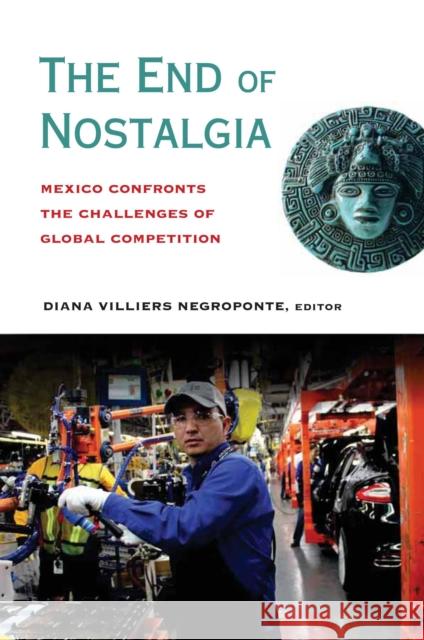The End of Nostalgia: Mexico Confronts the Challenges of Global Competition » książka
The End of Nostalgia: Mexico Confronts the Challenges of Global Competition
ISBN-13: 9780815724940 / Angielski / Miękka / 2013 / 218 str.
Today's Mexico is strongly determined to become a full player in the globalizing international economy. It has increased its manufacturing output in areas such as automobiles and electronics, and both corporate and government sectors would like to take greater strides toward being a full global player. But do the underlying institutional and cultural elements exist to support such an economic effort?
In "The End of Nostalgia," editor Diana Villiers Negroponte and colleagues from both sides of the Rio Grande examine the path that Mexico will likely take in the near future. It remains a land in transition, from a one-party political system steeped in a colonial Spanish past toward a modern liberal democracy with open markets. What steps are necessary for this proud nation to continue its momentum toward effective participation in a highly competitive world?
Contributors:
Armando Chacon is the research director at the Mexican Institute for Competitiveness.
Arturo Franco has worked with Cementos de Mexico (CEMEX) and the World Bank. He was a Global Leadership fellow at the World Economic Forum on Latin America, 2008-11.
Eduardo Guerrero is a partner at Lantia Consultores in Mexico City, where he works on security assessment. He joined the Secretaria de Gobernacion in December 2012.
Andres Rozental holds the permanent rank of Eminent Ambassador of Mexico. He is president of Rozental & Asociados and is a nonresident senior fellow at the Brookings Institution.
Christopher Wilson is an associate at the Mexico Institute of the Woodrow Wilson International Center for Scholars.
Duncan Wood is a member of the Mexican National Research System and editorial adviser to Reforma newspaper. Since January 2013, he has been the director of the Mexico Institute at the Woodrow Wilson International Center for Scholars."











